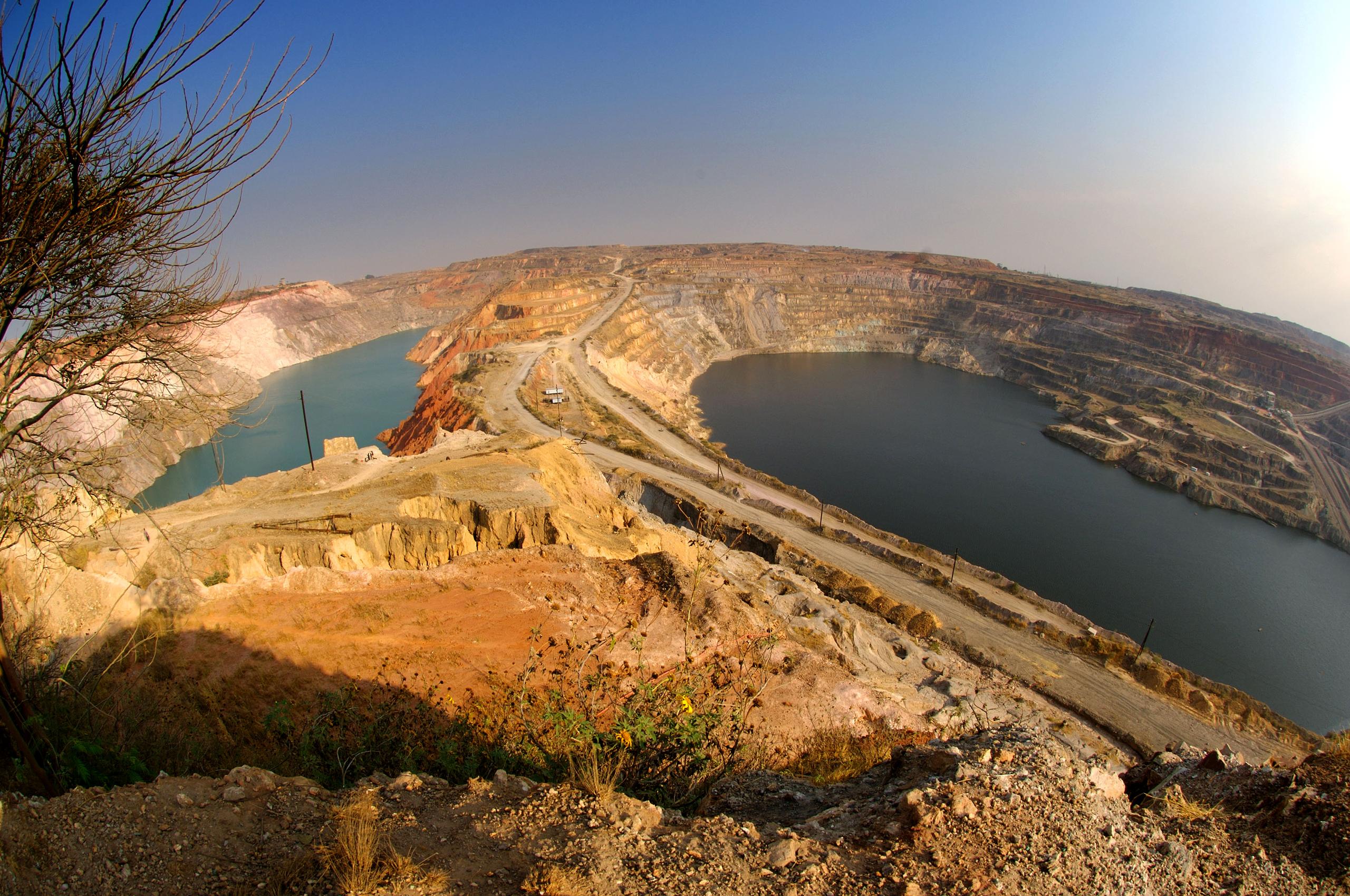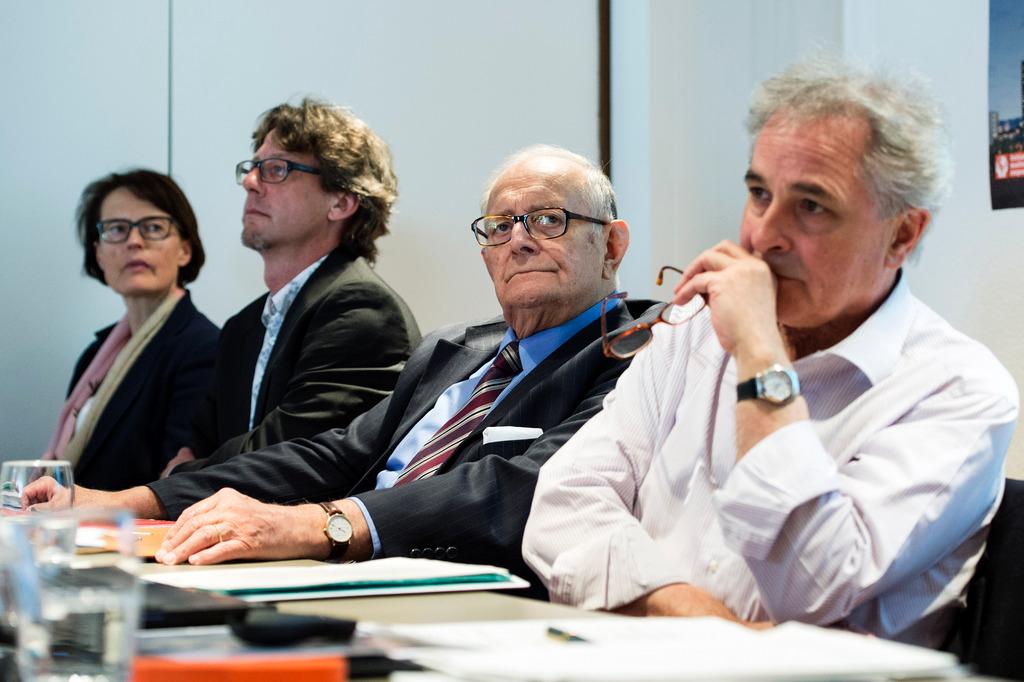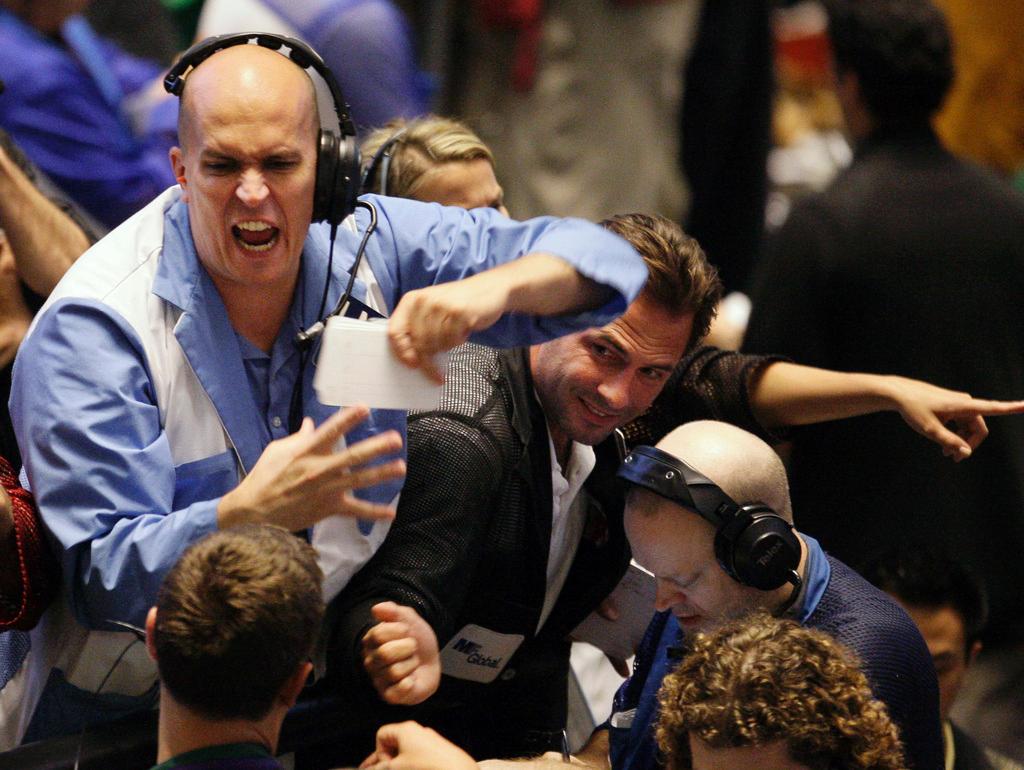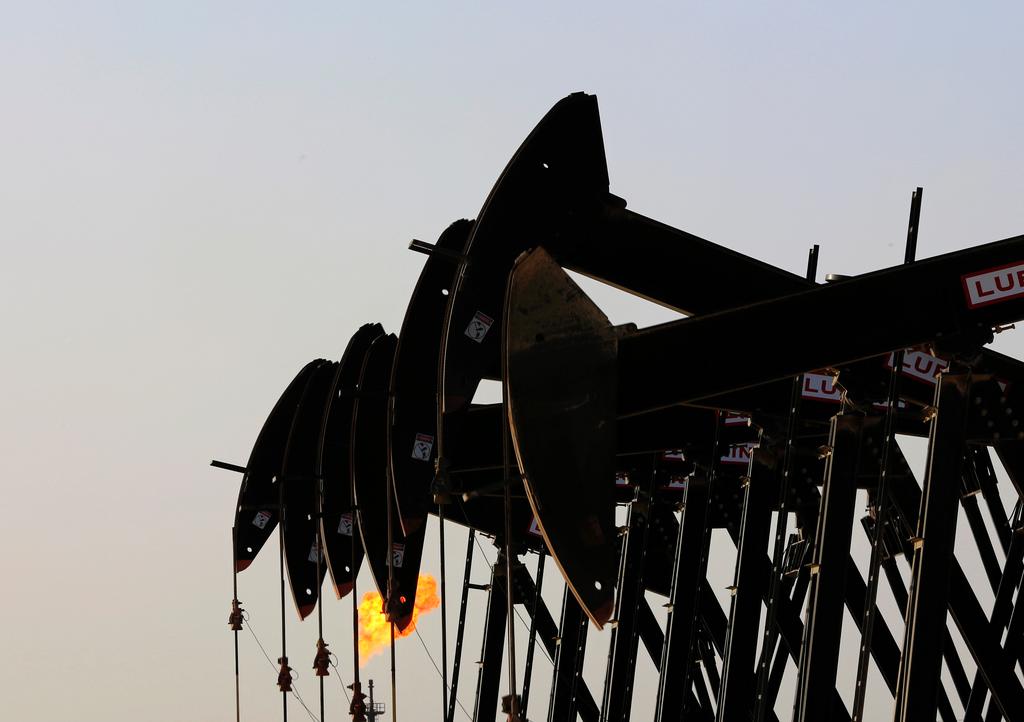‘Glencore isn’t the next Enron’

After a tumultuous week - and 2015 - for Zug-based company Glencore, is there cause for concern in Switzerland, where the commodities business represents 4% of the GDP?
Led by CEO Ivan Glasenberg, who until recently was generally regarded as a luminary for reading financial and commodities markets, Glencore has suffered unprecedented losses this year, losing some 70% of its market value since January. On Monday share prices dropped 29% following a report assessing the company’s mining challenges, before rebounding on Tuesday.
One of Switzerland’s biggest companies by revenue, Glencore gets 28% of its earnings from mining copper, which has fallen 18% this year. This had prompted it to suspend production at Katanga Mining in the Democratic Republic of Congo.
Giacomo Luciani, professor at Geneva’s Graduate Institute, warned that while Glencore’s market rally represents the latest sign of the effects of slow growth in the Chinese economy on commodities, it was important to view commodity firms, including the major Swiss-based ones, independently.
Luciani explained that the current speculation of Glencore’s stocks was “only possible because the company is publicly traded”.
In 2011, Glencore, one of several major commodities trading companies based in Switzerland, made an unprecedented move to go public in one of the largest and most controversial floats in London. At the time, the company, valued at $61 billion, was known for its reputation of being highly secretive, and there was concern about whether it could maintain its huge trading profits.
Other traders and risk
Other commodities companies, including Trafigura, Vitol, Mercuria and Gunvor, are privately owned, and therefore more difficult to assess in terms of financial performance. But just like Glencore, these traders are also exposed to varying degrees of risk especially through physical assets that they hold, such as mines and oil wells.
Geneva-based Trafigura, a base metals and energy trader and originally part of group of companies managed by Glencore’s initial founder Marc Rich, also holds stakes in mines, smelters ports and terminals. Vitol, also headquartered in Geneva, which trades energy products and other commodities, including agricultural products, has physical assets that include terminals, oil and chemical refineries and exploration and development holdings.
But as Luciani explained, the firms’ financial well-being would be determined by several factors, beginning with how they bet, or hedge, against commodities prices in relation to their net trading positions.
Furthermore, he explained that trading companies’ risk is measured in so-called VaR, or value at risk, by which traders ensure that risks are not taken beyond a level at which they can absorb losses on a probable worst outcome.
“It is a function of level of prices and volatility of prices,” Luciani said. “The level of prices has declined and this has reduced the risk of losses that the trading companies are facing. Volatility has increased, which has increased the risk of losses that the companies are facing. You have then two effects that balance each other, and it depends on a daily basis what your risk profile is.”
In the end, traders depend on “whether you are on the right or wrong side of market movements”. (see infobox).
Not too big
Following the global financial crisis and government bailouts of major banks, including UBS in Switzerland, global regulators expressed concern that commodity traders may be “too big to fail”, similarly to the world’s largest banks. Timothy Lane, deputy governor of the Bank of Canada, said in 2012 that the growing size of traders raised “the possibility that some of these institutions are becoming systemically important”.
In Switzerland, where six of the ten largest firms are commodities firmsExternal link, similar concerns have driven efforts by politicians to further regulate the sector. While some regulations aim at aligning Switzerland to the United States and the European Union on capping volumes speculatively held by traders, other efforts focus on greater transparency in payments being made to governments in countries where they do business.
In March Trafigura published a white paper External link rejecting the assessment that commodities traders present systemic risks to the global financial systems.
The company’s spokesman, Andrew Gowers, told swissinfo.ch that the effect of lower prices on commodities traders “was not a risk for the global economy and was not a risk for the Swiss economy”.
Referring to the report, Gowers added, “Even the largest of these firms are not comparable with even medium-sized banks in terms of their size. For the Swiss economy, whilst it is an important source of employment and tax revenues, there is no systemic importance.”
Luciani agreed on the assessment. “I don’t think that any [Swiss commodity trader], taken individually, is too big to fail, [or] large enough to make a dent in the Swiss economy. It is not the same thing as Volkswagen in Germany,” he noted.
Distinction from Enron
Comparisons have been drawnExternal link this week to US energy and commodities firm Enron, which filed for bankruptcy in 2001. But Randy Wilson, of consulting firm Deloitte’s energy and resource department in Geneva, disagrees. He said that many Geneva traders fell somewhere in between firms that were heavily invested in assets and those (like Enron) that were “asset-light”, that are purely focussed on trading, holding “virtual assets”.
“We all know how that model ended,” he said. Over the last few years, Swiss traders have increasingly diversified their portfolios by purchasing assets including wells and oil and gas fields, as well as storage and refineries.
Graber recalled that following the bankruptcy of Western Switzerland-based traders André & Cie. and OW Bunker, “the market was absolutely not affected, as other companies were ready to take over their activities.”
Prior to its closure in 2001, cereal trader André & Cie in Lausanne owed bankers CHF554 million and employed 240 people in the country. OW Bunker, formerly the leading supplier of marine fuel oil, filed for bankruptcy in 2014 after owing $325 million to creditors.
Meanwhile Swiss commodity traders have pushed hard to distinguish themselves from financial institutions. Craig Pirrong, the author of Trafigura’s report, said that while traders have also provided loans to producers, the financial structures they employ are not fragile as credit is often syndicated amongst large groups of banks, with traders assuming only a small part of the risk.
Staying private
Glencore’s rollercoaster ride this year may also have counterparts feeling good about not following the giant in amassing too many physical assets, and above all, in going public.
“I am sure that someone there is now reflecting [about its decision to go public on the stock market],” Luciani said.
Oil traders Vitol, Mercuria, Gunvor and Trafigura maintain that they would remain private.
“Glencore’s example may be a powerful deterrent because it shows that going public for companies that have very high risks exposes them to quite a lot of repercussions,” Luciani added.
Infobox
Geneva Graduate Institute professor Giacomo Luciani distinguishes between firms that are more focussed on trading and those that are more invested in physical assets: “A trader is indifferent when prices are high or low, because he buys and sells. In the case of Glencore it had bought upstream assets and mining companies so they are exposed to the absolute level of prices.”
Stéphane Graber, president of the Swiss Trading and Shipping Association, or STSA, agrees and adds that Swiss firms are only “marginally” invested in the extractive business, with the key focus being on trading. “It’s a margin business. Commodity traders will protect a margin and are not sensitive to the level of prices.” Extractive industries, on the other hand, which are more invested in assets, are more sensitive to prices, so that low prices would affect the return on investments.
Randy Wilson at consulting firm Deloitte’s energy and resource department in Geneva, says that with regard to energy, where oil prices remain at half their level from last year, 2015 has so far been good for traders. “For oil traders many of them have experienced record returns in the last year, mainly due to the strong contango in the market, where forward prices were higher than shorter term prices.” Traders would accordingly buy energy products and then store them with the expectation of selling later at higher prices.

In compliance with the JTI standards
More: SWI swissinfo.ch certified by the Journalism Trust Initiative



You can find an overview of ongoing debates with our journalists here. Please join us!
If you want to start a conversation about a topic raised in this article or want to report factual errors, email us at english@swissinfo.ch.